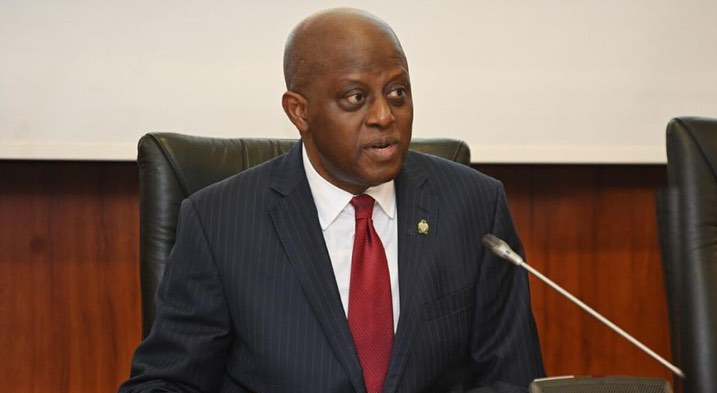Yemi Cardoso, governor of the Central Bank of Nigeria, has declared a decrease in market volatility, which he attributes to the central bank’s foreign exchange reforms.
Cardoso revealed this at a news conference in Washington, USA, after discussions with World Bank stakeholders.
He clarified that the bank’s audacious and unorthodox changes have enhanced the supply of foreign exchange and remittances coming into the nation.
Furthermore, he emphasised that the bank has stopped front-loading foreign exchange demand and reduced arbitrage and speculative activity.
“Since assumption of office a year ago, we’ve been focused on how to address inflationary concerns, restore investors confidence in financial markets and stabilizing the exchange rate. Enhancing the financial system, fostering financial inclusion and enhancing transparency in our monetary policy decisions and communication.”
“We embarked upon bold and necessary reforms to return to the path of monetary policy orthodoxy as well as removed observed distortion in the foreign exchange market. Our efforts have yielded significant progress as volatility in the foreign exchange market has abated immeasurably and remittances have also increased significantly.”
“We’ve achieved increased transparency and improved overall supply in the foreign exchange market, leading to reduced arbitrage, speculative activities and eliminated front loading of foreign exchange demand,” Cardoso said.
Recapitalisation Policy for Banks
Cardoso also offered his thoughts on the CBN’s deposit money bank recapitalization program.
The project is to sustain an economy of N1 trillion by 2030, according to the governor of the apex bank.
He emphasised the significance of preserving and consolidating recent advancements through an effective market system and the expansion of financial inclusion, but he admitted that much work still needs to be done.
“The CBN recapitalization policy has prompted deposit money banks to strengthen their financial position, a process expected to result in a more robust and resilient banking sector by March 2026. The exercise is meant to support the realization of the N1 trillion economy by 2030.
“We recognize that much is still needed to be done to fully achieve our goals. Our paths forward include consolidating and sailing current progress through an efficient market system and deepening financial and economic inclusion, particularly for small businesses, households, women and young people in Nigeria.
“By leveraging smarter technology and remote banking solutions, we aim to reduce transaction costs and expand financial access, ensuring that every Nigerian, regardless of location or demographics, can meaningfully participate in our financial system,” Cardoso added.
What To Note
Nigeria has seen currency changes in the foreign exchange market since last year, which has caused broad instability in all economic sectors.
Earlier this year, at the height of the crisis, the value of the naira fell to as low as N1,900/$ versus the dollar.
But in September, the currency recovered to about N1,600/$, and it showed indications of stability while remaining in the N1,650 area.
In response, the CBN implemented a number of policies and guidelines to control the currency, including crackdowns on the cryptocurrency market and the unofficial FX market, which included BDC operators.
A notable increase in foreign exchange inflows into the reserves has coincided with the naira’s relative stability versus the dollar this month.



